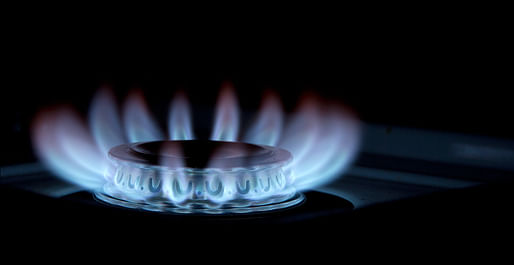

When Berkley, California recently made the announcement that it would become the first city in the United States to ban natural-gas installations in newly constructed buildings, public took note. After the news broke, four other California cities established new rules to "encourage buildings to use only electricity," according to a report from Salon. Since then, more cities, such as Santa Monica, San Jose, and Menlo Park have made the change, as well. Several larger California cities are seriously considering such a ban, as are more far-flung cities like Seattle and Brookline, Massachusetts. However, why is there still a group of individuals against this proactive approach to helping mitigate better carbon cutting practices?
Nathaneal Johnson of Salon highlights, "The Berkeley ban outlaws gas in new single family homes starting in January. It will apply to the construction of larger buildings as soon as state regulators put the finishing touches on standards for all-electric buildings. Most of the other cities that have passed ordinances are taking a more moderate approach.
Johnson was able to speak with Stet Sanborn, a principle at SmithGroup to learn more about their responses to the natural-gas ban. Sanborn expressed excitement and recognized the potential this "movement" will create. The push for all-electric buildings is still surrounded by this stigma of "increased costs and, perversely, worsen pollution" explains Johnson.
The battle between electric and gas is an ongoing feud. And though it seems like the all-electric camp is winning, there are still many perspectives—and concerns—involved, even for those who might be generally supportive of the change. Sanborn highlights, for example, that cities have turned to him and other engineers for advice to best craft new policies that won't "backfire."
4 Comments
given the acute housing shortage and scarcity of new build housing in CA, how much potential difference does this make? if this is an important contribution to GHG emissions, what are the plans for degassing existing housing?
i don't like that these kind of restrictions on new buildings only create a two-tier system of housing, which gives existing homeowners yet another advantage over the rest of us. but the bigger problem is it seems like a way to feel good about GHG emissions without reducing them.
residential uses do not drive demand for natural gas. what isn't burned at home will be burned in powerplants or exported to asia. this is no net benefit for the environment.
The two largest sources of fuel that power the nation's electric grid are natural gas (clean) and coal (not clean). Banning natural gas, which is widely used for residential heating, only increases the consumption of coal and increases pollution. But the 'woke' people feel good about themselves as they cause the pollution levels to increase.
The primary purpose here is really to prevent fires from ruptured gas lines in earthquake zones. Billing it as ‘green’ is BS. Natural gas is the cleanest of the fossil fuels and more efficient for direct use if you calculate emissions at the power source and power losses in electrical transmission (except for hydro & solar).
A fire after an earthquake is a major event as emergency services are already overstressed and the transportation infrastructure is often inoperative.
Burning NG is not the environmentally concerning issue, it's how it's captured / pulled from the ground.
Block this user
Are you sure you want to block this user and hide all related comments throughout the site?
Archinect
This is your first comment on Archinect. Your comment will be visible once approved.